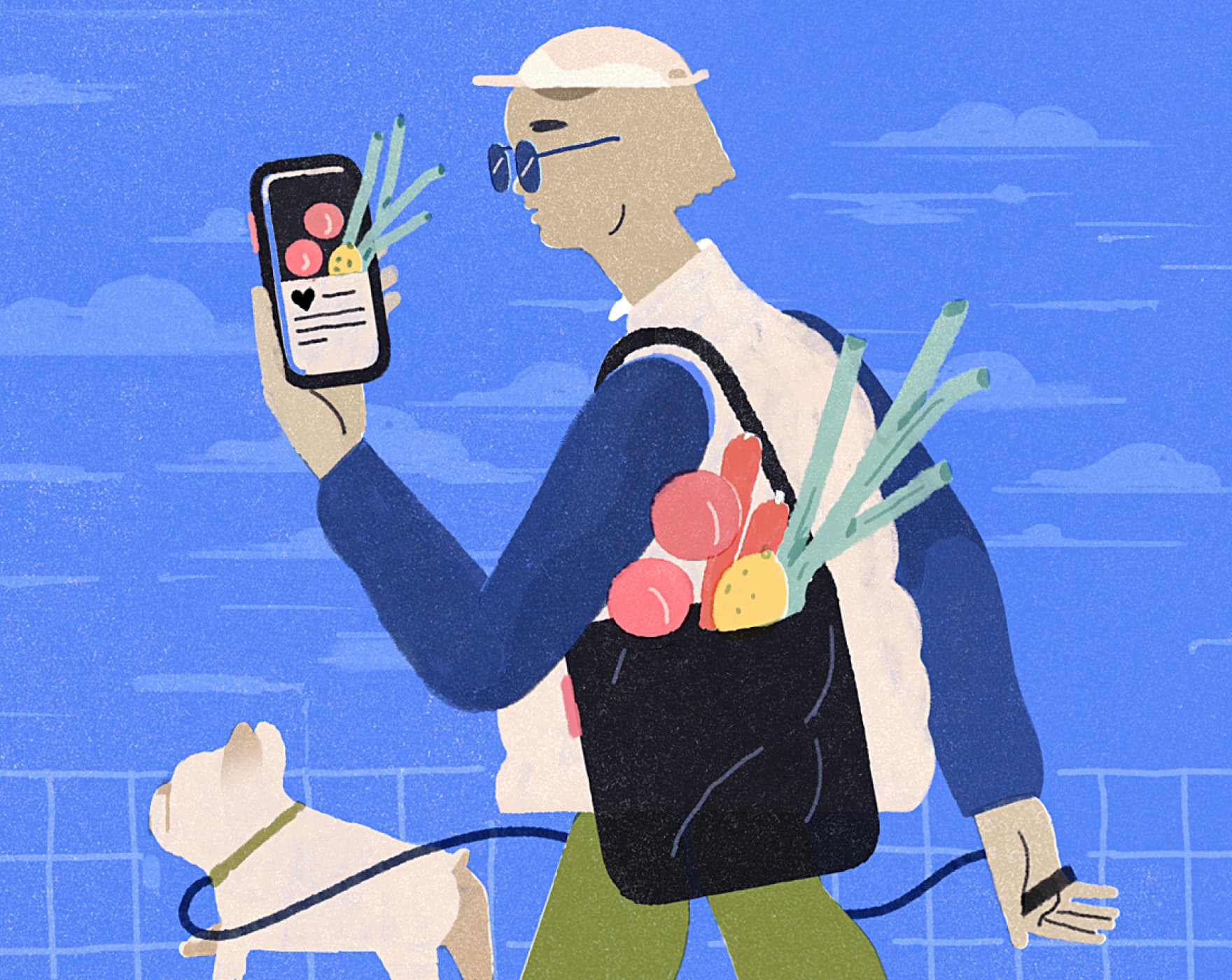The Flexible Eating Strategy That Can Help You Enjoy Food Again
Coaching
Leave rigid diet "rules" behind for good. Instead, learn how to tap back into your body's natural cues.
- Intuitive eating is a growing movement that can take the overthinking out of what, when and how much to eat. How freeing!
- By paying attention to your body's signals and being mindful, you can figure out what will satisfy you.
- Equip yourself with plenty of easy recipes on NTC so you can make a fulfilling plate any time.
- Once you've learnt to tap into your body's cues, upgrade your eating plan with more guidance from nutrition experts.
Read on to learn more …

Imagine you had true flexibility with your nutrition: you could just eat what you want, when you want—and actually feel good about it. That's the basic premise of intuitive eating.
"An intuitive eater is someone who trusts and honours their hunger, experiences no guilt in their food choices and is able to prioritise and seek out pleasure in eating", says Christy Harrison, an anti-diet registered dietitian at the forefront of this nutrition movement and the author of Anti-Diet: Reclaim Your Time, Money, Well-Being and Happiness Through Intuitive Eating.
Essentially, intuitive eaters give themselves unconditional permission to eat any amount of whatever they want, whenever they want.
If that sounds chaotic (or unrealistic) to you, remember that this is one of the oldest abilities you have, says Harrison. Like squatting with textbook form or breathing deeply from your belly, intuitive eating is something you were born doing, she adds. "Look at babies and you'll see they readily nourish themselves with a variety of foods, then push food away when they're satisfied".
This natural inclination gets derailed by what Harrison calls "diet culture", or the constant messages about what you should or shouldn't eat.
"Diet culture worships thinness and equates it to health and moral virtue", she says. "It raises up weight loss, elevates some foods and demonises others and looks down on people who don't match up to this version of health, specifically larger-bodied people".

Diet culture goes beyond fad weight-loss programmes and can seep into the language we use to describe healthy eating, says Harrison. "Instructions to 'eat clean' or avoid 'processed' foods may sound sensible, but even that language is subtle diet culture".
For some, following these inflexible rules sucks the joy out of eating, and for others, it can cause a range of problems, including emotional eating and an obsession with a healthy diet. "You constantly wonder, is this food 'clean' enough? Is it 'whole' enough?" says Harrison. "This thinking can be frustrating and mentally exhausting, and ultimately it may make people feel bad about themselves when they don't get it 'right'".
Research supports her view, showing that dieting and food restrictions seem to lead to one thing: weight gain. (In a landmark 2007 review from UCLA, researchers looked at 31 long-term studies on different diets. They found that, no matter what the protocol, most people regained all the weight they lost and then some, and they saw no health benefits.) The reasoning, Harrison explains, is that if you put restrictions on certain foods, you'll inevitably crave and obsess over those foods even more. And when you fail to stick to "the rules", you're more likely to binge for both biological and psychological reasons.
Intuitive eating, however, throws rules out the window and puts you in charge.
To get started, pay attention to whether and what you want to eat. Then, when you do eat, stop when you feel satisfied, and after you're done, ask yourself if there was anything that could have made the meal more fulfilling, says Harrison. You may realise that eating crisps for lunch instead of a sandwich makes you feel hungry again an hour later—or you could discover that eating them sates your craving for something salty and stops you from feeling out of control when you have your next meal or snack.
Maybe at this point you're thinking, The only thing that will satisfy me is constant crisps and cake. Harrison acknowledges that most people go through this kind of free-for-all honeymoon phase. "You may gravitate towards foods that you've forbidden yourself to eat because you've always thought of them as 'bad' foods", she says. "Though the cravings for those previously 'off-limits' foods won't necessarily go away, they'll be balanced out by cravings for other things". Sometimes it will still be crisps and cake, but other times it will be fruits or vegetables.
That balance is healthy, she says. Especially when, just as you did when you were a baby, you can intuitively consume the nutrients and amount of food your body needs. And better still, enjoy doing it. That's what we call progress.
Words: Marissa Stephenson
Illustration: Gracia Lam
CHECK IT OUT
Now that you know how to listen to your body's cues, upgrade your eating plan with more guidance from leading nutrition experts on Nike.com.